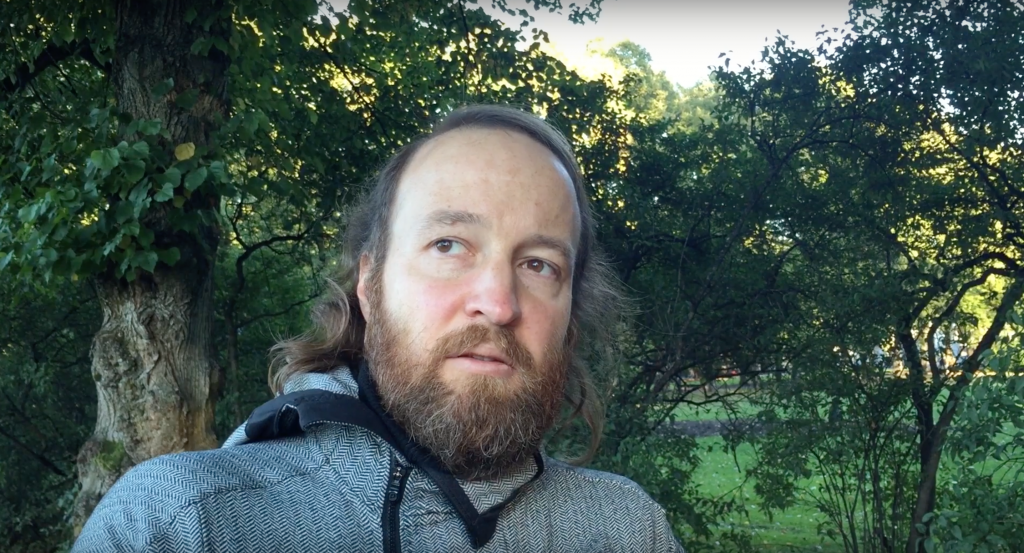“We have worked with Grigory Shvedov for several years and are deeply concerned about these threats against him, given the record of threats, attacks and killings of journalists in Northern Caucasus in recent years. The authorities on the local and Federal level should ensure the safety of journalists, publicly condemn threats and hold responsible parties accountable in accordance with the December 2015 United Nations resolution on human rights defenders,” commented Ane Tusvik Bonde, Human Rights House Foundation’s Regional Manager, Eastern Europe and Caucasus.
On 9 January, Front Line Defenders reported that Grigory Shvedov had been “publically threatened” by the Chechen official in the post entitled “How to untie the Caucasian Knot” and encouraged people to take action by writing to the Ministry of Justice of the Russian Federation. The post, comprised of an image of a dog with its tongue tied in a knot was also accompanied with a call for a vet to remove “Shved’s” wisdom teeth and to cut his tongue down to size.
The use of social media as a tool of intimidation is nothing new in Chechnya. The Chechen President, Ramzan Kadyrov last year posted a video of Russian opposition leader Mikhail Kasyanov in gun sights on Instagram which was later removed for violating the policy of the platform.
Shvedov, who has filed a complaint against Daudov with Russia’s Investigative Committee, told Russian newspaper RBK “This is a threat to all journalists who find it necessary to report the situation in the Chechen Republic in a professional manner.”
Threats faced by journalists
On 10 January 2017, Vladislav Ryazantsev, a Caucasian Knot correspondent in central Rostov-on-Donwas, was attacked and beaten by five masked men according to Caucasian Knot.
The dangers and severe threats faced by journalists working in the region have been highlighted several times recently:
In October 2016, HRHF marked the 10 year anniversary of the murder of investigative journalist Anna Politkovskaya, who spent much of her career as a vocal opponent of the pro-Russian Chechen administration led by Ramzan Kadyrov, and previously by his father Akhmad Kadyrov.
In April 2016, correspondent of the News Agency Caucasian Knot, Zhalaudi Geriev, was kidnapped while traveling to Grozny, the capital of the Chechen Republic. Geriev was later sentenced to three years in prison for possession of drugs. Geriev has stated that the confession was obtained through the use of torture.
On 9 March 2016, several journalists, including Swedish and Norwegian journalists, accompanied by the Russian Committee Against Torture, were attacked at the border between the republics of Ingushetia and Chechnya.
In August 2014 Timur Kuashev, correspondent for DOSH magazine, was killed.
Reaction to the threats
Nils Muižnieks, the Council of Europe Commissioner for Human Rights expressed his concern about the threat stating his disappointment about a lack of firm reaction from political leaders at regional and federal level: “Such events are unacceptable and should always be condemned in order to send an unequivocal message that the State does not tolerate any sort of attacks on the press and stands by human rights standards.”
“I express my solidarity with Mr Shvedov and extend it to all journalists who take serious risks to serve the public good. At the same time, I urge the political leaders in Chechnya and at the Federal level to better protect media freedom and to promote an environment in which journalists can exercise their profession safely and freely,” concluded Muižnieks.
The OSCE Representative on Freedom of the Media, Dunja Mijatovic, also condemned the “unacceptable and dangerous behaviour by the Chechen Parliament Speaker Daudov calling for violence against the Caucasian Knot editor-in-chief.”
Nadezda Azhgikhina, vice-president of the European Federation of Journalists (EFJ) commented that “Threats against Russian journalists and journalists covering Caucasus are a shameful reality,” in the EFJ article covering the story.
About Grigory Shvedov and Caucasian Knot
Grigory Shvedov is the Russian editor in chief of the 24/7 internet news agency Caucasian Knot, which covers events in each of the 20 regions of Russia’s North Caucasus, South Federal District, and the independent South Caucasus. Caucasian Knot works to ensure public access to reports on human rights violations in the Caucasus, an area of ongoing conflict.
Shvedov was awarded the Geuzenpenning prize for human rights defenders in 2012.
Caucasian Knot won the Zeit Stiftung and Fritt Ord’s Free Press of Eastern Europe Award 2007.





